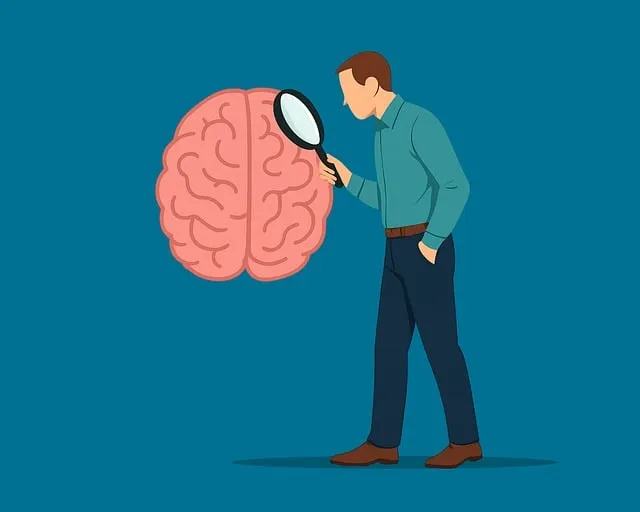Kaiser Permanente mental health centers in Denver offer Social Skills Training (SST), a holistic approach combining communication, empathy, conflict resolution, and stress management workshops. This program addresses isolation caused by conditions like depression and anxiety, reducing stigma through positive Kaiser Permanente mental health center reviews. SST equips individuals with confidence-building tools for social interactions, leading to improved self-esteem, social integration, and community involvement, as highlighted in numerous Kaiser Permanente mental health center reviews Denver.
Social skills training is a powerful tool for individuals navigating mental health conditions, offering a unique approach to enhancing their ability to connect and interact with others. This comprehensive guide explores how these training programs can significantly improve social interactions, especially in the context of mental health challenges. We delve into the benefits, strategies, and real-life success stories, including insights from Kaiser Permanente mental health center reviews in Denver, showcasing effective practices that foster social growth and overall well-being.
- Understanding the Impact of Mental Health Conditions on Social Interactions
- The Role of Social Skills Training in Treatment Plans
- Strategies and Techniques for Effective Social Skills Development
- Success Stories and Kaiser Permanente Mental Health Center Reviews from Denver
Understanding the Impact of Mental Health Conditions on Social Interactions

Mental health conditions can significantly shape an individual’s social interactions and overall well-being. Conditions such as depression, anxiety disorders, or bipolar disorder often impact a person’s ability to connect with others, leading to feelings of isolation and loneliness. The social skills training (SST) offered at Kaiser Permanente mental health centers in Denver is designed to help individuals navigate these challenges. SST focuses on improving communication, empathy, and conflict resolution skills, enabling better engagement in social settings.
By addressing the impact of mental illness on social interactions, SST contributes to stigma reduction efforts. It fosters resilience by teaching coping strategies and enhances overall well-being through stress management workshops and organization-led initiatives. The Denver mental health center reviews consistently highlight the effectiveness of these programs in empowering individuals to lead more fulfilling social lives, showcasing a holistic approach to mental health care that extends beyond traditional therapy sessions.
The Role of Social Skills Training in Treatment Plans

Social Skills Training plays a pivotal role in enhancing the effectiveness of treatment plans at Kaiser Permanente mental health centers, such as those in Denver. These programs are designed to equip individuals with conditions like anxiety, depression, or social phobias with the necessary tools to navigate interpersonal interactions confidently and effectively. By focusing on communication, empathy, and conflict resolution, these training sessions help foster meaningful connections and improve overall mental wellness.
Incorporating Mental Wellness Coaching Programs and Stress Reduction Methods into treatment plans has proven beneficial for many. The goal is not only to manage symptoms but also to empower individuals with lasting strategies for stress management. This holistic approach, as advocated by leading mental health centers like Kaiser Permanente, aims to enhance social integration, boost self-esteem, and promote a sense of belonging, ultimately contributing to improved mental health outcomes as evidenced in Denver’s Kaiser Permanente mental health center reviews.
Strategies and Techniques for Effective Social Skills Development

Social skills training plays a pivotal role in managing mental health conditions, as it equips individuals with tools to navigate social interactions with confidence and ease. At Kaiser Permanente mental health centers in Denver, therapists employ diverse strategies to foster effective development. These include role-playing exercises that simulate real-life scenarios, helping clients practice responses and build comfort in various social contexts. Additionally, cognitive behavioral therapy (CBT) techniques are incorporated to challenge negative thought patterns and replace them with healthier, more adaptive perspectives, thereby enhancing social interactions.
Beyond these methods, group therapy sessions facilitate a supportive environment where individuals can learn from one another’s experiences, share coping strategies, and build camaraderie. Emphasizing active listening, empathy, and open communication, these sessions promote emotional healing processes and contribute to reducing the stigma surrounding mental illness. Moreover, stress reduction methods like mindfulness exercises are integrated to help clients manage anxiety and improve their overall social well-being, aligning with Kaiser Permanente’s commitment to holistic mental health care.
Success Stories and Kaiser Permanente Mental Health Center Reviews from Denver

Many individuals struggling with mental health conditions find hope and support through Kaiser Permanente Mental Health Center in Denver. The center is renowned for its comprehensive approach to care, integrating various therapeutic modalities to address complex needs. Reviews highlight the expertise of the staff, particularly their ability to foster a safe and non-judgmental environment, encouraging clients to build resilience and develop essential social skills.
Success stories from Kaiser Permanente Mental Health Center demonstrate the positive impact of tailored interventions. Programs like Burnout Prevention Strategies for Healthcare Providers and Stress Management Workshops Organization have empowered individuals to manage stress, enhance emotional intelligence, and improve their overall well-being. These initiatives reflect a commitment to not only treating mental health issues but also equipping individuals with the tools to navigate challenges in a healthy and adaptive manner.
Social skills training plays a pivotal role in enhancing the lives of individuals with mental health conditions, as evidenced by successful programs like those reviewed at the Kaiser Permanente Mental Health Center in Denver. By addressing the unique challenges these conditions present in social interactions, targeted interventions can foster better communication, build meaningful relationships, and promote overall well-being. The strategies outlined in this article serve as a toolkit for professionals and individuals seeking to navigate the social realm with greater confidence and ease. Through continued research and accessible programs like those offered by Kaiser Permanente, social skills training is revolutionizing mental health care, offering hope and support to those who need it most.






